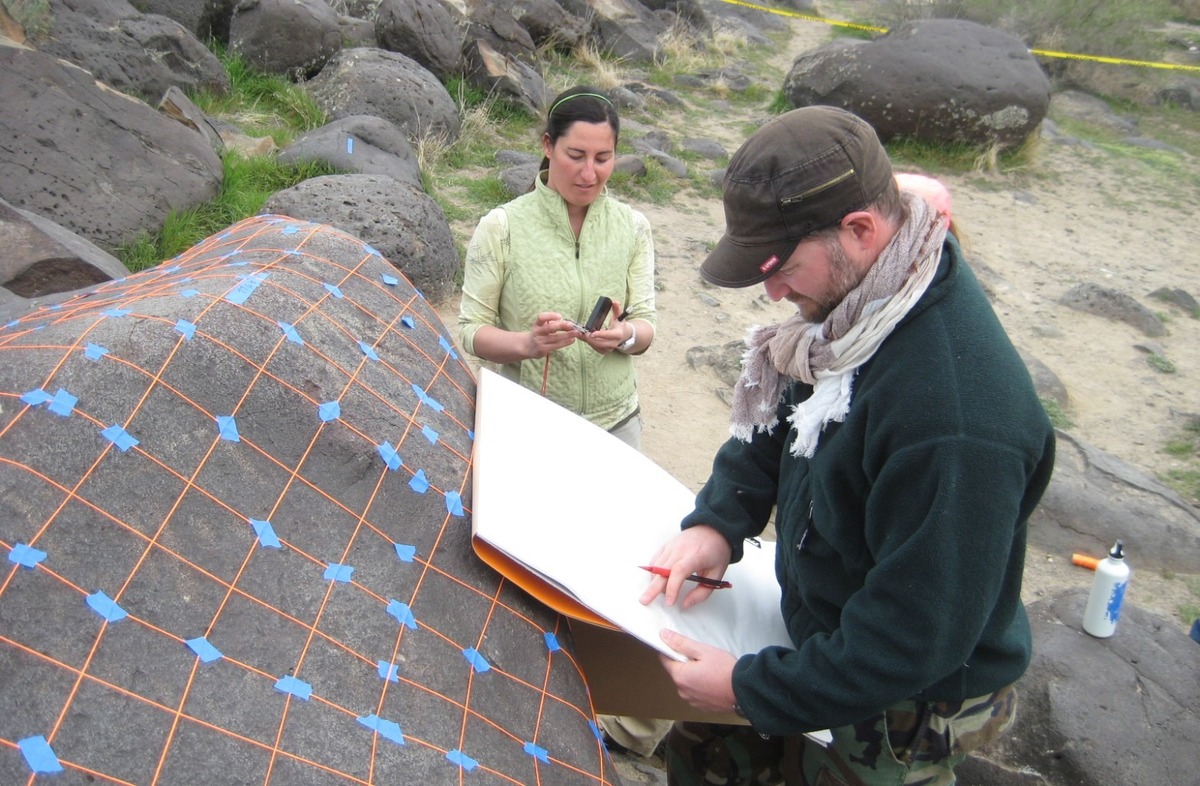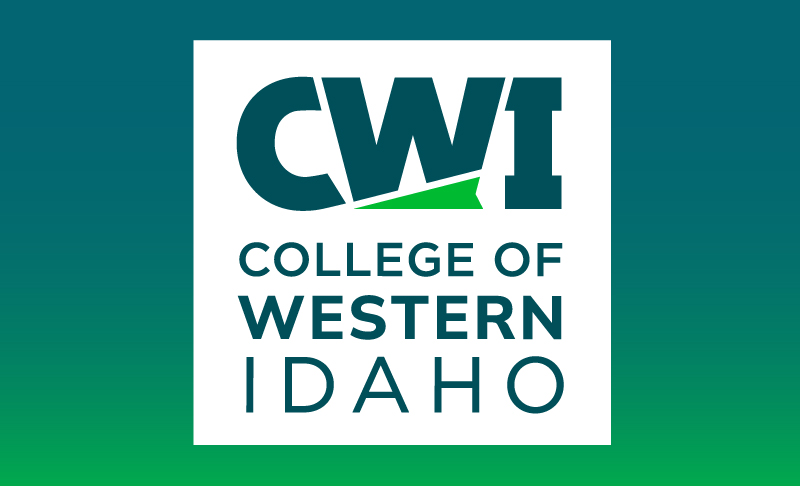Anthropology (A.A.)

About the Program
The study of anthropology provides students with the academic foundation necessary to understand the diversity and complexity of the human experience from a holistic approach. Students will learn to ask challenging questions, engage critically with the material, utilize statistical analysis, and appreciate the interconnected relationship between humans and the environment from an evolutionary perspective.
This program can be completed fully online and prepares students to transfer to a four-year institution for further studies with a strong background in problem-based research, technical writing, communication, and presentation skills, as well as an introduction to geographic information systems (GIS) technology. Program coursework is supplemented by opportunities to engage in archaeological and ethnographic fieldwork with state and local partners. Completion of the required courses is designed to result in an Associate of Arts degree in Anthropology and meets the general-education requirements at all Idaho public universities. Course selection should be coordinated to meet requirements for your intended transfer institution (if known).
Anthropologists work in a variety of contexts including but not limited to: cultural resource management (CRM), museum collections, archaeological surveys, colleges and universities, state and federal agencies, non-profit associations and non-governmental organizations (NGOs), corporations (business anthropology), criminal justice (forensic anthropology), and healthcare (medical anthropology). Research and communication skills, along with diversity awareness training and bilingualism, are increasingly valued in a globalized marketplace, which makes anthropologists uniquely equipped for future employment in a number of fields and industries.
Program Requirements
-
Gem 1 Written Communication complete the following 2 requirements6 creditsComplete ENGL-101.ENGL101 - Writing and Rhetoric I3 creditsENGL101P - Writing and Rhetoric I3 creditsComplete ENGL-102.ENGL102 - Writing and Rhetoric II3 credits
-
GEM 2 Oral Communication take 2 credits, take at least 1 course2 creditsComplete one GEM 2 course.COMM100 - Communication Matters2 creditsCOMM101 - Fund of Oral Communication3 creditsCOMM112 - Argumentation and Debate3 credits
-
GEM 3 Mathematical Ways of Knowing take 3 credits, take at least 1 course3 creditsComplete MATH-123 or MATH-153.MATH123 - Math in Modern Society3 creditsMATH123P - Math in Modern Society3 creditsMATH153 - Statistical Reasoning3 creditsMATH153P - Statistical Reasoning3 credits
-
GEM 4 Scientific Ways of Knowing complete the following 2 requirements7 creditsComplete ANTH-104 or ANTH-101 per Department Exception.ANTH104 - Biological Anthropology3 creditsComplete the GEM 4 courses listed below:GEOG100 - Physical Geography3 creditsGEOG100L - Physical Geography Lab1 credit
-
GEM 5 Humanistic & Artistic Ways of Knowing take 6 credits, take at least 2 courses, in 2 different fields6 creditsComplete two GEM 5 courses from different disciplines.ARTS101 - Prehistoric to Medieval Art3 creditsARTS102 - Renaissnce to Modrn Art in Wst3 creditsARTS105 - Intro to 2-D Art Foundations3 creditsARTS106 - Intro to 3-D Art Foundations3 creditsENGL175 - Literature and Ideas3 creditsENGL215 - Survey of World Mythology3 creditsENGL230 - Multicultural American Lit3 creditsENGL257 - Survey of Western World Lit I3 creditsENGL258 - Survey of Western World Lit II3 creditsENGL267 - Survey of British Literature I3 creditsENGL268 - Survey of British Lit II3 creditsENGL277 - Survey of American Lit I3 creditsENGL278 - Survey of American Lit II3 creditsFILM110 - Introduction to Film Studies3 creditsFREN101 - Elementary French I4 creditsFREN102 - Elementary French II4 creditsFREN201 - Intermediate French I4 creditsHIST103 - Western Civilization I3 creditsHIST104 - Western Civilization II3 creditsHUMA101 - Prehistory to Renaissance3 creditsHUMA102 - Humanities: Baroque to Modern3 creditsJAPN101 - Elementary Japanese I4 creditsJAPN102 - Elementary Japanese II4 creditsMUSI100 - Introduction to Music3 creditsMUSI108 - Survey of Jazz & Pop Music3 creditsPHIL101 - Introduction to Philosophy3 creditsPHIL103 - Intro to Ethics3 creditsSIGL101 - American Sign Language I4 creditsSIGL102 - American Sign Language II4 creditsSIGL201 - American Sign Language III4 creditsSIGL202 - American Sign Language IV4 creditsSPAN101 - Elementary Spanish I4 creditsSPAN102 - Elementary Spanish II4 creditsSPAN111 - Spanish for Healthcare4 creditsSPAN201 - Intermediate Spanish I4 creditsSPAN202 - Intermediate Spanish II4 creditsTHEA101 - Theatre Appreciation3 credits
-
GEM 6 Social & Behavioral Ways of Knowing complete the following 2 requirements6 creditsWhile PSYC 250 is strongly recommended, it is not offered online. Students completing this degree fully online may select one of these alternative options to fulfill their first GEM 6 requirement (listed in order of recommendation): SCIE-102, SOC-120, SOC-102, PSYC-101, ENGL 115. Whatever course is used to fulfil the first GEM 6 requirement, the second GEM 6 course MUST be from a different discipline.Complete PSYC-250 (see notes).PSYC250 - Fund Social Science Research4 creditsENGL115 - Rhetoric and Popular Culture3 creditsPSYC101 - Introduction to Psychology3 creditsSOC102 - Social Problems3 creditsSOC120 - Global Issues3 creditsSCIE102 - Ethics in Science3 creditsComplete one GEM 6 course from a different discipline.ANTH102 - Cultural Anthropology3 creditsCRIJ101 - Intro to Criminal Justice3 creditsCRIJ103 - Intro to Law & Justice3 creditsECON201 - Principles of Macroeconomics3 creditsECON202 - Principles of Microeconomics3 creditsEDUC120 - Foundations of Education3 creditsENGL115 - Rhetoric and Popular Culture3 creditsEXHS155 - Health & Wellness3 creditsGEOG102 - Cultural Geography3 creditsGEOG200 - World Regional Geography3 creditsHIST101 - World History I3 creditsHIST102 - World History II3 creditsHIST111 - United States History I3 creditsHIST112 - United States History II3 creditsPHIL111 - World Religions3 creditsPOLS101 - American National Government3 creditsPOLS102 - Intro to Political Science3 creditsPSYC101 - Introduction to Psychology3 creditsSCIE102 - Ethics in Science3 creditsSOC101 - Introduction to Sociology3 creditsSOC102 - Social Problems3 creditsSOC120 - Global Issues3 creditsSOC220 - Sociology of Deviance3 credits
-
Ethical Reasoning take 3 credits, take at least 1 course3 creditsComplete three credits of Ethical Reasoning courses (designated by the ** symbol) from: AGRI-120, ENVI-100, EXHS-155, HLTH-280, PHIL-101, PHIL-103, PSYC-250, SCIE-102, or SOC-220. Ethical Reasoning courses will also fulfill GEM 1-6 or Global Perspectives requirements.AGRI120 - Global Food Perspectives3 creditsENVI100 - Environmental Science3 creditsEXHS155 - Health & Wellness3 creditsHLTH280 - Global Health3 creditsPHIL101 - Introduction to Philosophy3 creditsPHIL103 - Intro to Ethics3 creditsPSYC250 - Fund Social Science Research4 creditsSCIE102 - Ethics in Science3 creditsSOC220 - Sociology of Deviance3 credits
-
Global Perspectives3 creditsComplete the Global Perspectives course listed below.ANTH102 - Cultural Anthropology3 credits
-
Connecting With Ideas complete 1 of the following requirements3 creditsStudents will need an additional GEM or Global Perspectives course if CWI-101 is not completed for credit, see catalog for options.CWI101 - Connecting With Ideas3 creditsStudents will need an additional GEM or Global Perspectives course if CWI-101 is not completed for credit, see catalog for options.AGRI109 - Principles of Animal Science3 creditsAGRI109L - Princ of Animal Science Lab1 creditAGRI120 - Global Food Perspectives3 creditsANTH102 - Cultural Anthropology3 creditsANTH103 - Intro to Archaeology3 creditsANTH104 - Biological Anthropology3 creditsARTS101 - Prehistoric to Medieval Art3 creditsARTS102 - Renaissnce to Modrn Art in Wst3 creditsARTS104 - African, Oceanic & Pre-Clm Art3 creditsARTS105 - Intro to 2-D Art Foundations3 creditsARTS106 - Intro to 3-D Art Foundations3 creditsBIOL100 - Concepts of Biology3 creditsBIOL100L - Concepts of Biology Lab1 creditBIOL111 - Biology I3 creditsBIOL111L - Biology I Lab1 creditBIOL127 - Human Structure and Function3 creditsBIOL127L - Human Structure & Function Lab1 creditBIOL227 - Human Anatomy & Physiology I3 creditsBIOL227L - Human Anat and Phys I Lab1 creditBUSA256 - International Business3 creditsCHEM100 - Concepts of Chemistry3 creditsCHEM100L - Concepts of Chemistry Lab1 creditCHEM101 - Intro to Chemistry3 creditsCHEM101L - Intro to Chemistry Lab1 creditCHEM102 - Essntls of Organic & Biochem4 creditsCHEM102L - Esstl of Organic & Biochem Lab1 creditCHEM111 - General Chemistry I3 creditsCHEM111L - General Chemistry I Lab1 creditCOMM100 - Communication Matters2 creditsCOMM101 - Fund of Oral Communication3 creditsCOMM112 - Argumentation and Debate3 creditsCOMM160 - Communication and Culture3 creditsCOMM259 - Communicating Thru Web Design3 creditsCRIJ101 - Intro to Criminal Justice3 creditsCRIJ103 - Intro to Law & Justice3 creditsCRIJ280 - Victimology3 creditsCWI101 - Connecting With Ideas3 creditsECON201 - Principles of Macroeconomics3 creditsECON202 - Principles of Microeconomics3 creditsEDUC120 - Foundations of Education3 creditsEDUC200 - Education Around the World3 creditsENGL101 - Writing and Rhetoric I3 creditsENGL101P - Writing and Rhetoric I3 creditsENGL102 - Writing and Rhetoric II3 creditsENGL115 - Rhetoric and Popular Culture3 creditsENGL175 - Literature and Ideas3 creditsENGL215 - Survey of World Mythology3 creditsENGL230 - Multicultural American Lit3 creditsENGL257 - Survey of Western World Lit I3 creditsENGL258 - Survey of Western World Lit II3 creditsENGL267 - Survey of British Literature I3 creditsENGL268 - Survey of British Lit II3 creditsENGL277 - Survey of American Lit I3 creditsENGL278 - Survey of American Lit II3 creditsENVI100 - Environmental Science3 creditsENVI100L - Environmental Science Lab1 creditEXHS155 - Health & Wellness3 creditsEXHS270 - Motor Learning3 creditsEXHS270L - Motor Learning Lab1 creditFERM120 - Introduction to Fermented Food3 creditsFINA109 - Pers. Finance & Business Math3 creditsFILM110 - Introduction to Film Studies3 creditsFILM121 - Movies Around the World3 creditsFREN101 - Elementary French I4 creditsFREN102 - Elementary French II4 creditsFREN201 - Intermediate French I4 creditsGEOG100 - Physical Geography3 creditsGEOG100L - Physical Geography Lab1 creditGEOG102 - Cultural Geography3 creditsGEOG200 - World Regional Geography3 creditsGEOG270 - Global Climate Change3 creditsGEOL101 - Physical Geology3 creditsGEOL101L - Physical Geology Lab1 creditGEOL102 - Historical Geology3 creditsGEOL102L - Historical Geology Lab1 creditGEOS104 - Natural Disasters & Envir Geol3 creditsGEOS104L - Nat Disasters & Envir Geol Lab1 creditGEOS105 - Earth's Natural Resources3 creditsGEOS270 - Global Climate Change3 creditsHIST101 - World History I3 creditsHIST102 - World History II3 creditsHIST103 - Western Civilization I3 creditsHIST104 - Western Civilization II3 creditsHIST111 - United States History I3 creditsHIST112 - United States History II3 creditsHLTH220 - Fundamentals of Nutrition3 creditsHLTH280 - Global Health3 creditsHUMA101 - Prehistory to Renaissance3 creditsHUMA102 - Humanities: Baroque to Modern3 creditsJAPN101 - Elementary Japanese I4 creditsJAPN102 - Elementary Japanese II4 creditsMATH118 - Technical Math2 creditsMATH118L - Technical Math Lab1 creditMATH123 - Math in Modern Society3 creditsMATH123P - Math in Modern Society3 creditsMATH130 - Finite Mathematics4 creditsMATH143 - College Algebra3 creditsMATH143P - College Algebra3 creditsMATH147 - College Algebra & Trigonometry5 creditsMATH153 - Statistical Reasoning3 creditsMATH153P - Statistical Reasoning3 creditsMATH160 - Survey of Calculus4 creditsMATH170 - Calculus I5 creditsMATH257 - Math for Elem Teachers II4 creditsMMBS106 - Make Sense of Micro-Biotic-Me3 creditsMMBS111 - Introductory Microbiology3 creditsMMBS111L - Introductory Microbiology Lab1 creditMUSI100 - Introduction to Music3 creditsMUSI108 - Survey of Jazz & Pop Music3 creditsMUSI109 - Survey of World Music3 creditsPHIL101 - Introduction to Philosophy3 creditsPHIL103 - Intro to Ethics3 creditsPHIL111 - World Religions3 creditsPHLT110 - Lfstyle Diseases & Global Brdn3 creditsPHYS100 - Survey of Physics3 creditsPHYS100L - Survey of Physics Lab1 creditPHYS101 - Survey of Astronomy3 creditsPHYS101L - Survey of Astronomy Lab1 creditPHYS111 - General Physics I3 creditsPHYS111L - General Physics I Lab1 creditPHYS112 - General Physics II3 creditsPHYS112L - General Physics II Lab1 creditPHYS211 - Phys Scientists & Engineers I4 creditsPHYS211L - Phys Scientsts & Enginrs I Lab1 creditPOLS101 - American National Government3 creditsPOLS102 - Intro to Political Science3 creditsPOLS221 - Intro to Internat'l Relations3 creditsPSYC101 - Introduction to Psychology3 creditsPSYC140 - Human Relations for Success3 creditsPSYC211 - Psych Aspects of Dying & Death3 creditsPSYC221 - Gender3 creditsPSYC231 - Human Sexuality3 creditsPSYC250 - Fund Social Science Research4 creditsSCIE101 - Foundations of Science3 creditsSCIE102 - Ethics in Science3 creditsSIGL101 - American Sign Language I4 creditsSIGL102 - American Sign Language II4 creditsSIGL201 - American Sign Language III4 creditsSIGL202 - American Sign Language IV4 creditsSOC101 - Introduction to Sociology3 creditsSOC102 - Social Problems3 creditsSOC120 - Global Issues3 creditsSOC220 - Sociology of Deviance3 creditsSPAN101 - Elementary Spanish I4 creditsSPAN102 - Elementary Spanish II4 creditsSPAN111 - Spanish for Healthcare4 creditsSPAN201 - Intermediate Spanish I4 creditsSPAN202 - Intermediate Spanish II4 creditsTHEA101 - Theatre Appreciation3 credits
-
Major Requirements complete the following 2 requirements15 creditsComplete the following courses:ANTH103 - Intro to Archaeology3 creditsGIS126 - Fundamentals of GIS3 creditsComplete 3 courses from the following: ANTH-220, ANTH-240, ANTH-250, ANTH-260.ANTH220 - Indigenous Peoples N. America3 creditsANTH240 - Basque Heritage & Cont. People3 creditsANTH250 - Indigenous Mythology & Rituals3 creditsANTH260 - Mexican Heritage & Contemp Ppl3 credits
-
Major Electives8 credits
* Please note that you must meet with an advisor each semester in order to verify degree completion time as well as online course offerings for the program requirements.

